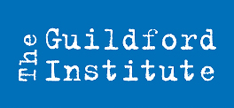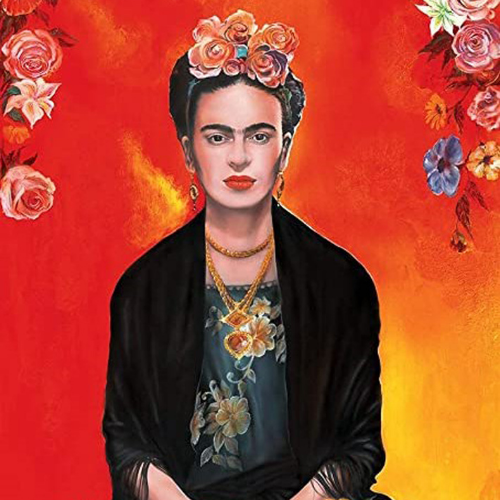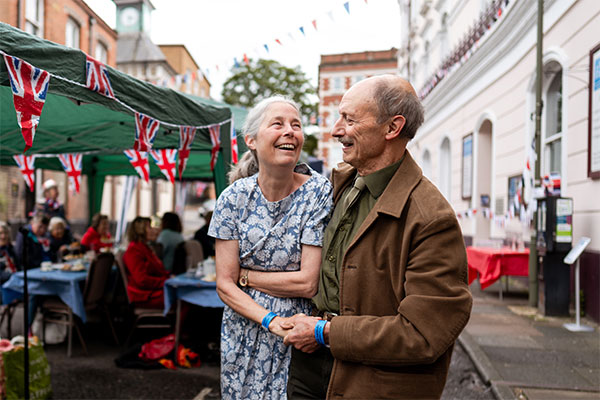Here at The Guildford Institute, we are proud to have lots of talented female tutors who teach a wide variety of subjects. Our focus this term is Inspirational Women, so we thought it would be a great idea for you to get to know some of our female tutors and speakers a little better, and highlight a selection of their upcoming courses and events taking place this spring term.
International Women’s Day is an annual holiday, celebrated globally on 8 March. The day commemorates and celebrates the achievements of women throughout history and the present day. The first gathering was celebrated well over a century ago, in 1911. A wide range of historic events and achievements carried out by women including their political, social, economic, and cultural impacts throughout history and the present day are celebrated on International Women’s Day.

Jenny Frendo
Tell us about your career and background. How did you get into teaching?
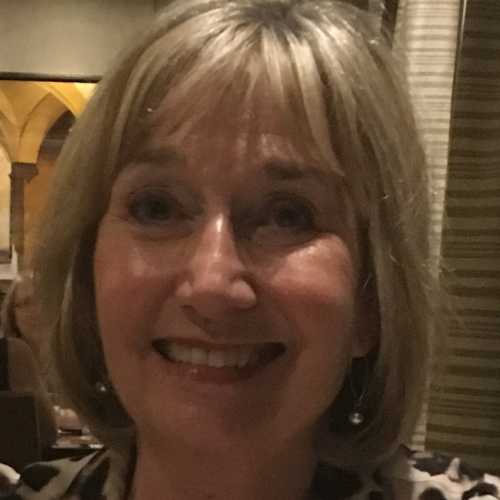
My early career was in Human Resources (although it was Personnel Management in the 1970s) and part of my work involved designing and delivering induction courses for new employees. I thoroughly enjoyed this aspect of my job and was drawn to the idea of teaching.
When I left my role to have children, I embarked on an Open University degree and became fascinated by 19th century history and the impact of industrialisation. This led me to my career teaching for the WEA, The University of Surrey’s continuing education department and The Guildford Institute.
What does International Women’s day mean to you?
International Women’s Day is an opportunity to reflect on the struggles of so many courageous women whose determination and campaigning has brought about changes in laws, attitudes and perceptions.
What inspired you to choose the subject matter for your upcoming course ‘Pioneering Women in 19th Century Britain‘, linked to our termly focus of Inspirational Women?
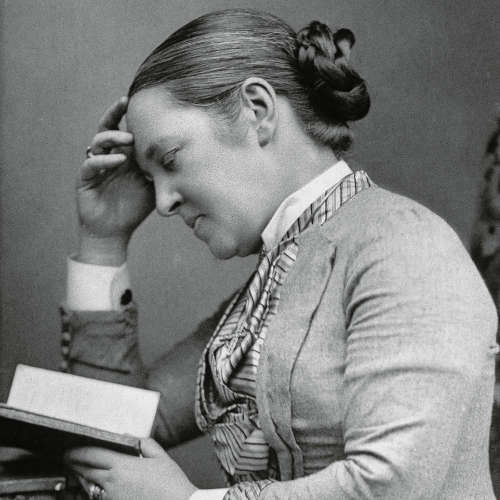
I never cease to be amazed by the attitudes that prevailed in the 19th century and the courage that it took for women to fight for the right to education, career opportunities and legal status. In my course on Pioneering Women we will examine the background to some of these issues and the trailblazing efforts of some of the women involved in campaigning for change.
What is your favourite part about teaching at The Guildford Institute?
My favourite part of working at the Institute is the opportunity to meet and engage with the students whose enthusiasm and interest makes for a stimulating teaching experience. I also very much appreciate the hard work and help I receive from all the lovely staff.
Interested in learning more about the legacies of female trailblazers in the 19th century? Jenny’s course, Pioneering Women in 19th Century Britain, begins on 8 March.
Tammy Ellis
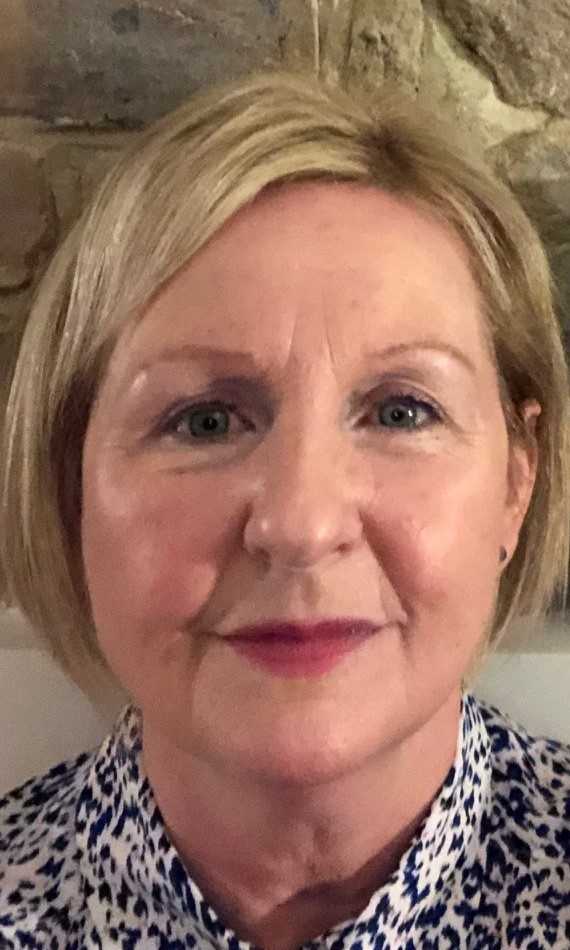
Tell us about your career and background. How did you get into teaching?
My first degree was in French and German and I worked for a bank for a while before working for a company that imported furniture from East Germany as a schedule controller, translator and German teacher.
After starting my family, I moved into teaching adults at night school, gave private lessons to GCSE and ‘A’ level students and I also taught French to RAF officers. After I completed my second degree in Combined Studies (Art History and Literature), I transferred my teaching skills to concentrate on art history, a subject which has long been a passion of mine.
What does International Women’s Day mean to you?
I think that concentrating on women and their influence, both in the workplace and in society in general, is very important. My most recent lectures have been on the subject of women who have been essentially almost forgotten in art history. This has prompted strong reactions in class, both from men and women, as to how such creative individuals have simply slipped under the radar or are viewed only as an ‘attachment’ to their male counterparts. In focusing on women and their strengths and abilities, in all walks of life, we can create a more balanced and progressive world.
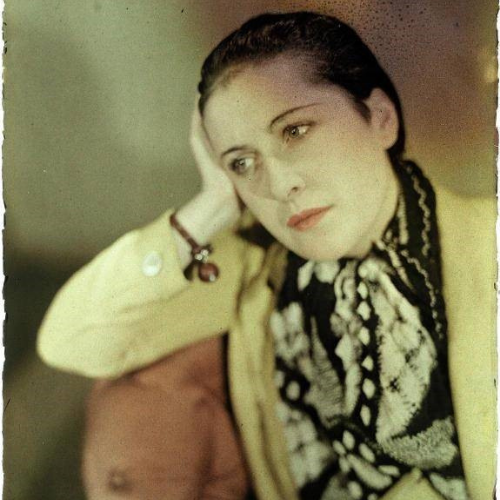
What inspired you to choose the subject matter for your upcoming course, Daring Dora – The Life and Times of Dora Maar, linked to our termly focus of Inspirational Women?
Dora Maar is a prime example of a woman who was, and is, often seen as merely a woman whose role was to complement the man in her life- in this case as a muse of Picasso. Yet Dora Maar was an inspiring artist and individual and the exhibition at Tate Modern (November 2019-March 2020) really highlighted this. Being a muse of Picasso was a small part of her artistic world. She lived for almost all of the twentieth century and was a fabulous photographer, painter and loved to experiment. Maar also influenced Picasso’s work and was, above all, someone who loved to create. It definitely says something about the struggle and lack of recognition of women artists when most of her work was discovered posthumously.
What is your favourite part about teaching at The Guildford Institute?
The Guildford Institute gave me my first art history teaching opportunity when it was still part of the University of Surrey. I shall be forever grateful for that. The Institute has a unique and welcoming ambiance and serves the community so well. It offers a great variety of courses and opportunities for people to meet and enjoy one another’s company. I particularly like this sense of community and the way that I am able to interact and discuss art history with people I genuinely find inspiring.
Would you like to find out more about successful painter and photographer, Dora Maar? Tammy’s course, Daring Dora – The Life and Times of Dora Maar, takes place on 31 March.
Kathy Atherton
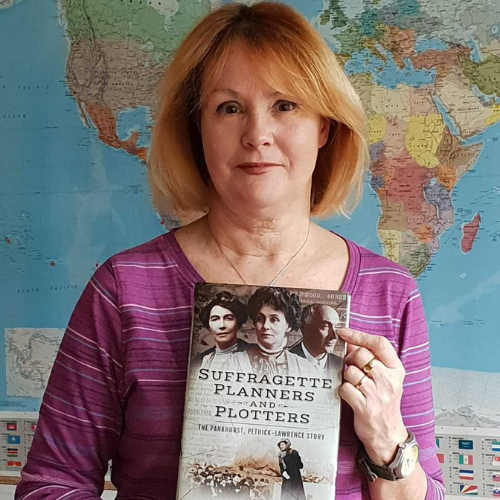
Tell us about your career and background. How did you get into public speaking?
After an MPhil in 17th century studies I worked as a lexicographer for the Oxford English Dictionary before spending 10 years as a lawyer. Since leaving the law I have written six history books, led battlefield tours, and made a short film on the lives of Emmeline and Fred Pethick-Lawrence with Royal Holloway (University of London) and another with the Mayflower 400 project.
I am a trustee and Chairman of Dorking Museum, where I lead the guided walks team and am responsible for temporary exhibitions and oral history. I am also one of the founders of the Cockerel Press. I have written on the First World War, Dorking’s Mayflower Pilgrims, the Fight for the Vote in the Surrey Hills area and on the lives of Fred and Emmeline Pethick-Lawrence, funders of Mrs Pankhurst’s radical ‘suffragettes’. I speak regularly on BBC radio, have given talks around the country, contributed to academic publications on the fight for the vote, and have been responsible for the installation of two blue plaques recognising the achievements of women whose contribution has been overlooked.
I began public speaking as a direct result of my research and publications, speaking to local groups on request, but the focus on the centenary of the vote being granted to some women in 2018 saw a flood of invitations to speak around the country on forgotten aspects of women’s history.
What does International Women’s Day mean to you?
As a historian, International Women’s Day is a wonderful opportunity to look back at women’s achievements and to evaluate their impact and relevance to issues facing women today. It is a time of celebration, and a great opportunity to share the stories of inspirational women who might otherwise be forgotten, but it also allows us a space to consider the issues facing women today and how we can support those who are still battling for recognition, freedom and equality both domestically and around the world.

What inspired you to choose the subject matter for your upcoming Special Event, The Fight for the Vote for Women in the Surrey Hills, linked to our termly focus of Inspirational Women?
The inspirations for the talk on the Fight for the Vote in the Surrey Hills were the incredible stories of the women themselves. There is a tendency to see ‘history’ as being created in cities, by influential people. The fight for the vote attracted women from all areas and all walks of life. I think it is empowering for people to know that by their determination and courage, women from their own Surrey town or village made a real difference.
What is your favourite part about doing events with The Guildford Institute?
Lively audiences really make speaking at the Institute a pleasure and often question and answer sessions at the end of a talk can be the most interesting. People come with their own stories, connections and opinions which they are usually generous enough to share. History is a collaborative process, and as a speaker I often come away with a deeper or wider understanding of the impact of events, or with leads to follow up, through conversations with members of the audience.
If you would to discover more about this courageous group of women, Kathy’s talk, The Fight for the Vote for Women in the Surrey Hills, takes place on 8 March.
Songül Yilmaz Meier
Tell us about your career and background. How did you get into teaching?
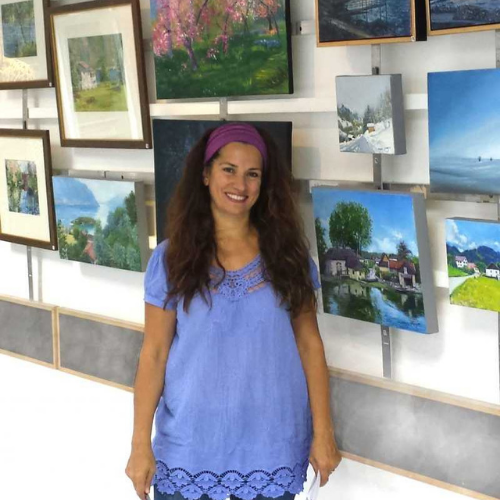
I love travelling and many of my paintings are inspired from my travels. I studied Fine Arts in Turkey and gained a BA. When I graduated, I qualified as an art teacher but it wasn’t until 2001 that I decided to start teaching. I have been professionally painting and teaching for the last 20 years; 13 years have been spent at Kingston Adult Education and then almost 6 years at The Guildford Institute.
I have had exhibitions in a range of places including the UK, Switzerland, France and Turkey. The use of colours inspires my work and I enjoy capturing lights in my paintings. I specialise in painting landscapes but l enjoy painting to any other themes that inspire me.
What does International Women’s day mean to you?
International Women’s day to me means celebrating gender equality and a world free of discrimination. This year’s slogan for the International Women’s Day 2022 campaign “let’s break the bias” along with the phrase ‘we are strong when we are together’ come to mind when I think of International Women’s Day.
What inspired you to choose the subject matter for your upcoming course, ‘Colours of Frida Kahlo’, linked to our termly focus of Inspirational Women?
Frida Kahlo is an inspiration to many women. She was bullied at school, however grew up to be a strong woman and broke many barriers for her time. She is remembered for her self-portraits and her bold, vibrant uses of colour. During this one-day course, we will explore her use of colour and celebrate her art by creating your own Frida Kahlo inspired work.
What is your favourite part about teaching at The Guildford Institute?
I am lucky enough to be able to meet so many enthusiastic people who come here to learn. It is a very special place for tutors to be creative, as well as being an educational venue with a variety of courses and talks for keen learners. My aim is to encourage people, whilst also giving structural support with demonstrations of how they can learn.
Keen to create your own Frida Kahlo inspired portrait? Songül’s course, Colours of Frida Kahlo, takes place on 9 March. Visit Songül’s website to see more of her artwork.
We hope you enjoyed learning more about International Women’s Day and getting to know our tutors and speakers a little better. Visit the What’s On section of our website to browse our upcoming activities.
